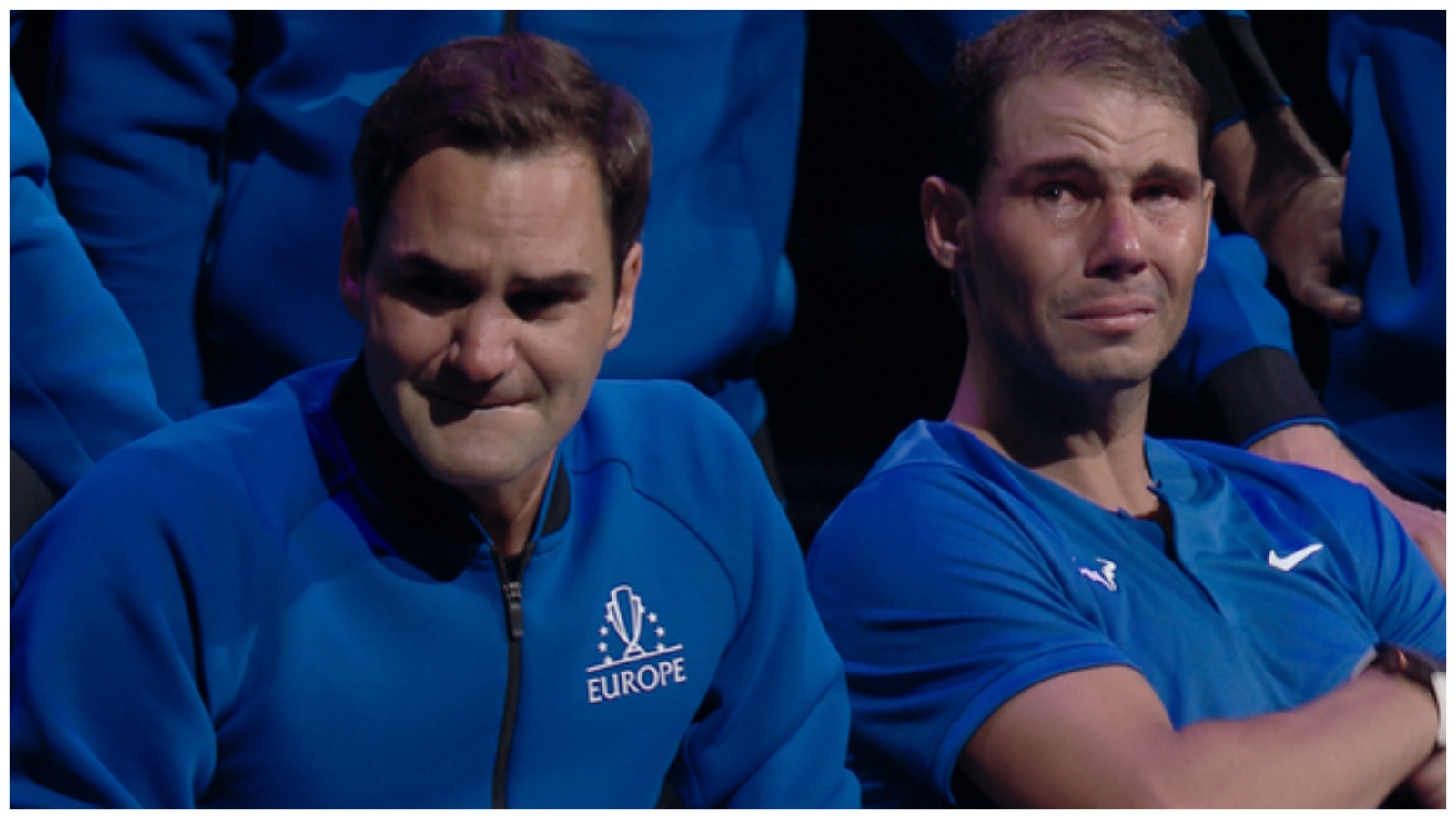Tennis
Federer Twelve Final Days movie review: A tear-jerker farewell for tennis’ GOAT; a love-letter to Roger-Rafa romance

Retirement is never pleasant for any sportsperson, but in tennis, it’s particularly cruel. The greatest champions will struggle to put up a fight in their final match. They will lose in an early round to younger players, hungry to take their place, or to complete underdogs, who will get a story to tell their grandkids. They will be in pain, probably unranked, recovering from their most recent surgery. Their bodies will break down before their minds; their friends and family will tear up in the box. It will be an excruciating experience for everybody, including their fans. And yet, the champions won’t give up. Sport cannot be scripted, but one truth is written in stone — regardless of how many accolades a tennis player has won in their career, the last time they step onto a court to play a match, they will lose. It’s a humbling experience.
“An athlete dies twice,” says Severin Lüthi, the long-time coach of Roger Federer, minutes before the icon is set to play his final competitive match at the 2022 Laver Cup in London. He says this to nobody in particular, because Federer is already inside the locker room, carrying out his customary pre-match ritual of tying a bandana on his head and giving himself a quick mental pep-talk in the mirror. Moments like these are captured by directors Asif Kapadia and Joe Sabia in the new Prime Video documentary Federer: Twelve Final Days, a superficial but surprisingly moving account of the GOAT’s decision to retire from the sport by essentially hosting a grand farewell party for himself. But unlike other tennis documentaries — the ones about Naomi Osaka and Andy Murray are the best of the bunch — that simply featured their subjects, Twelve Final Days feels like it was commissioned by Federer.
Also read – Beckham review: David Beckham bends the narrative in his favour in fleet-footed Netflix documentary
What the movie lacks in a certain rawness it more than makes up for by — almost inadvertently — arriving at the same conclusions as the recent hit Challengers. That film’s ground-breaking, near-silent climax, in which lifelong buddies and on-court rivals leap across the net and embrace each other, seemingly abandoning their tense match, may very well have left casual viewers confounded. Challengers, whose very structure mimicked that of a hard-fought tennis duel, successfully captured the almost indescribable intimacy that two players on opposite ends of the court might develop for each other. And it’s telling that the biggest romance in Federer: Twelve Final Days isn’t between Federer and his wife, Mirka, but between him and his greatest rival, Rafael Nadal.

The Spanish giant appears in the movie just after the first act; a smart decision by directors Kapadia and Sabia, who understand perfectly well what Nadal’s presence will bring to the already nostalgic narrative. Prior to that, they’d restricted the use of archival footage only to scenes in which they would illustrate, perhaps to tennis outsiders, why Federer is considered the greatest player to have ever swung a racquet. “He was a Baryshnikov on the tennis court,” declares the legendary John McEnroe, who was also on site during Federer’s farewell. But when Nadal enters the picture — mind you, this happens after the arrival of Federer’s other great rivals, Novak Djokovic and Andy Murray — the movie transforms into something else entirely.

Before he announced his retirement to the world, Federer confided in Nadal, asking if he’d perhaps play alongside him one last time. Nadal, who was just about to become a father for the first time, promised him that he would. In the movie, he admits that he held it together during their 10-minute phone call, but broke down immediately afterwards. This, perhaps, is foreshadowing for the waterworks to follow. Kapadia has eulogised legends before — he won an Oscar for his Amy Winehouse documentary, a BAFTA for his Ayrton Senna film, and premiered his Diego Maradona doc at Cannes. But this is a different kind of movie. The intimacy that it achieves is through expression, not access.
But there are quick moments of insight, as well. For instance, Federer makes it pretty clear that he wasn’t exactly fond of Djokovic, at least back in the day. He admits that he didn’t give the controversial Serbian the respect he deserved when they first played each other, before casually pointing out the ‘technical flaws’ with his forehand and, for good measure, mentioning that Djokovic essentially gatecrashed the perfectly pleasant Roger-Rafa rivalry with force. Federer whispered something in Djokovic’s ear after his final match, which he says in the movie was something that he always wanted to tell him. But it’s unclear if the sudden emotion that Djokovic is struck by after this moment is genuine, or, as has become increasingly common with his public persona, entirely put on.

The sense of an ending can be felt throughout the film’s 100-minute run-time. “I’m solid,” Federer keeps saying, mostly to himself, as he fights back tears at several points in the film. This is what he did during his matches, before inevitably exploding the second they ended. He is keenly aware of this, as he is, perhaps, of having taught an entire generation (of boys) the importance of losing with grace, and being emotionally vulnerable. He was famously poker-faced on court. But one of the most interesting insights that he shares in the movie paints him as an unexpectedly ruthless competitor. “I would try to beat them at their own game,” he says, revealing that he would adapt his playing style to strategically ape his opponents’, purely for that extra psychological damage.

Read more – Boom Boom The World vs Boris Becker review: Epic Apple documentary offers sympathetic look at the rise and fall of a tennis great
Tennis is a contact sport where nobody touches each other. Nobody is throwing haymakers on the court; in fact, it’s customary to apologise after minor flukes. Players can, however, gauge their opponent’s emotions by the force of their shots, or the volume of their grunts. The irony, of course, is that nobody can empathise with a tennis player’s inherent loneliness better than the one person who’s trying to beat them. In many ways, nobody understood what Federer was going through on court better than Nadal. Because there is no other explanation for what happened after their final match together in London that evening.
In images circulated across the world, the two champions — rivals, legends, but also friends — sat side-by-side on a chair, more wrinkled than they were when they first met decades ago, and wept openly. As the on-court announcer made a speech that nobody was paying attention to, their hands briefly grazed each other’s — a near-imperceptible expression of what can only be described as love. Federer and Nadal may have felt each other’s tenacity on court via the topspin of their groundstrokes or the aggression of their fist-pumps. But as strange as it might sound, they also felt each other’s sadness. There’s a reason why their matches were always bittersweet; the euphoria of victory was always marked by a tinge of melancholy, because regardless of who won, one of them lost. They might have held hands for the first time that day, but both Federer and Nadal seemed to realise that emotionally, they can never let each other go.
Federer: Twelve Final Days
Directors – Asif Kapadia, Joe Sabia
Rating – 4/5
© IE Online Media Services Pvt Ltd
First uploaded on: 19-06-2024 at 07:52 IST




)






